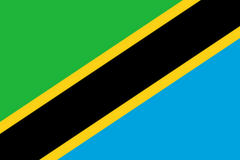By Staff Reporter
President Kikwete has finally followed in the path of leaders from Zambia, Malawi, South Africa and Nigeria by arresting and prosecuting individuals alleged to have been involved in corrupt deals, but now that he has shown he will follow through with stern action, he has opened a floodgate of speculation across the country over who could be the next target of investigation. But as the nation waits to see how these ongoing court battles will play out against those accused of corruption and abuse of office, the lingering question - in a country with so many scandals and so little headway made in mitigating them - remains: Who is next? Kikwete`s pledge to fight corruption is under close donor scrutiny and, compounded by a groundswell of public dissatisfaction with the litany of graft cases in the country, he has had little choice but to show a willingness to combat grand corruption seriously and aggressively. However, with the fresh move to arrest and prosecute prominent individuals implicated in various dubious deals, President Kikwete has strongly revived his once plummeting credibility, with majority of the 38million plus said to be rallying behind him, according to the latest research findings released on Friday. What started with the prosecution of suspects in the Bank of Tanzania?s External Payment Arrears account scandal earlier this month has taken a dramatic twist this week when former two cabinet ministers, Basil Mramba and Daniel Yona, were arrested and charged before a court of law. The Prevention and Combating of Corruption Bureau and lawyers from the Director of Public Prosecutions have been working to put key evidence together in a host of corruption cases before taking legal action. The current pending files include the controversial BAE radar deal, the Buzwagi Mineral Development Agreement contract, the Richmond energy contract, and dubious deals involving Kiwira coal and Meremeta Gold Mine. According to well-placed sources, so far the radar investigation has been fully completed, but it has not been made clear whether the accused will be taken to court in the coming weeks. Sailesh Vithlani organised a $40m deal between the UK arms suppliers British Aerospace Engineering (BAE system) and the Tanzanian government, and allegedly received kickbacks amounting to $12m that he shared with at least seven high-ranking officials from the previous Tanzanian administration. He fled the country two years ago, soon after he was charged with perjury, and reportedly has three passports - Indian, UK and Tanzanian - and dual citizenship in Tanzania and India. The UK?s Serious Fraud Office has just completed its investigation on the dubious radar deal, but has said it will not make the report public. Early this year, former Attorney General and the minister for infrastructure Andrew Chenge resigned after the SFO found $2m in his offshore bank account. Chenge said he stepped down from his post in order to pave the way for a thorough investigation against him to take place independently. So far it is not clear whether the monies in the offshore account had been part of the BAE System money paid to Vithlani`s Swiss bank account or not. Another scandal is the Buzwagi mine deal, which spurred strong criticism from opposition legislators as well some of their counterparts from the ruling party, leading to the expulsion of Kigoma North legislator Zito Kabwe from the August parliament last year. According to an official from PCCB who spoke under condition of anonymity, there are still some technicalities that need to be fully sorted out before legal action is taken. Former Minister of Energy and Minerals Nazir Karamagi signed the Buzwagi contract in London early in February last year, paving the way for Canadian mining giant Barrick Gold Corporation to invest about $400m in the construction of an open pit mine. The deal drew fierce criticism for having been penned outside the country. Contacted for comment on Friday, Karamagi said: ?If I signed the contract for my personal interest then let the law take its course, but I did it for the interest of my country and the government.`` As for Mramba and Yona`s arrests and the implication they may have for him, Karamagi said he had not been following the week`s events. ``I haven`t been in the country for about a week?I have just returned today(Friday) and have no clear picture of what`s going on,`` he said, adding: ``There`s a tendency of celebrating the misfortune of others where people want to judge you outside the court of law.`` ``Of course if there`s any wrongdoing during my services as a minister, let the law take its path,`` he insisted. After the dramatic arrest of Mramba and Yona, some political commentators are now saying those named in the Richmond energy scandal as well as other dubious deals should also be taken to court. Contacted for comment on the ongoing war against grand corruption, Kigoma North MP Zitto Kabwe said: ``There are still a number of serious issues that need to be thoroughly dealt with, which could lead to the prosecutions of more top officials.`` For instance the dubious Meremeta Gold deal reportedly cost the nation close to $150m, a figure greater than even the billions of shillings looted under the EPA scam, but little attention has been paid to this scandal, Kabwe told The Guardian on Sunday. Another pending case which, if fully pursued as recommended by the parliamentary select committee, could lead to the prosecutions of prominent individuals within the government is the controversial Richmond-a Texan energy firm which purpoted to provide emergency power generators for the country during in 2006. The controversial Richmond scam caused the resignation of former premier Edward Lowassa, former energy and minerals minister Nazir Karamagi, and former minister for East African community affairs Ibrahim Msabaha. But critics have made it clear that resignations alone aren`t enough, urging the government to prosecute those responsible if there`s enough evidence to stand up in court. The investigative report on the Richmond contract also named anti-graft czar Edward Hosea and Attorney General Johnson Mwanyika to be disciplined for their failure to advise the government wisely during deal-signing. The two officials have strongly denied any wrongdoing. On the docket for investigation is also the mysterious Kagoda Agricultural Development Company, which pocketed a big chunk of the EPA billions but whose ownership has so far remained a mystery. Although some powerful politicians and businessmen including Yusuf Manji have been linked to Kagoda, no official statement has been issued by the Attorney General-led task force on the real owners of the company that made off with 40bn/- in the EPA racket. Still skeptical Kabwe said the public should treat the ongoing war on corruption with great caution, adding that it might be a well-calculated move aimed at restoring public confidence in the Kikwete administration ahead of the 2010 general election. ``Having two ministers in remand is not a normal thing and this is good news...but remember President Mkapa also did the same during his first term in office when he arrested and prosecuted a cabinet minister and a permanent secretary, but later on abandoned the war on corruption,`` Kabwe said. In his early days in office, acting on the corruption dossier issued by Judge Joseph Warioba, Mkapa`s regime arrested Nalaila Kiula, who served as the minister for works during the second phase regime, and his PS George Mlingwa. The duo were found guilty and sentenced to three years in jail. Looking at the laundry list of scams still on the government`s plate - the Buzwagi deal the Kiwira coal mine contract associated with Yona and Mkapa, the Richmond scam, Meremeta gold, the EPA scam and the BAE radar deal - it is clear that more big shots may be following in Yona and Mramba?s chained footsteps sooner rather than later.
SOURCE: Sunday Observer
Monday, December 1, 2008
Subscribe to:
Post Comments (Atom)



No comments:
Post a Comment